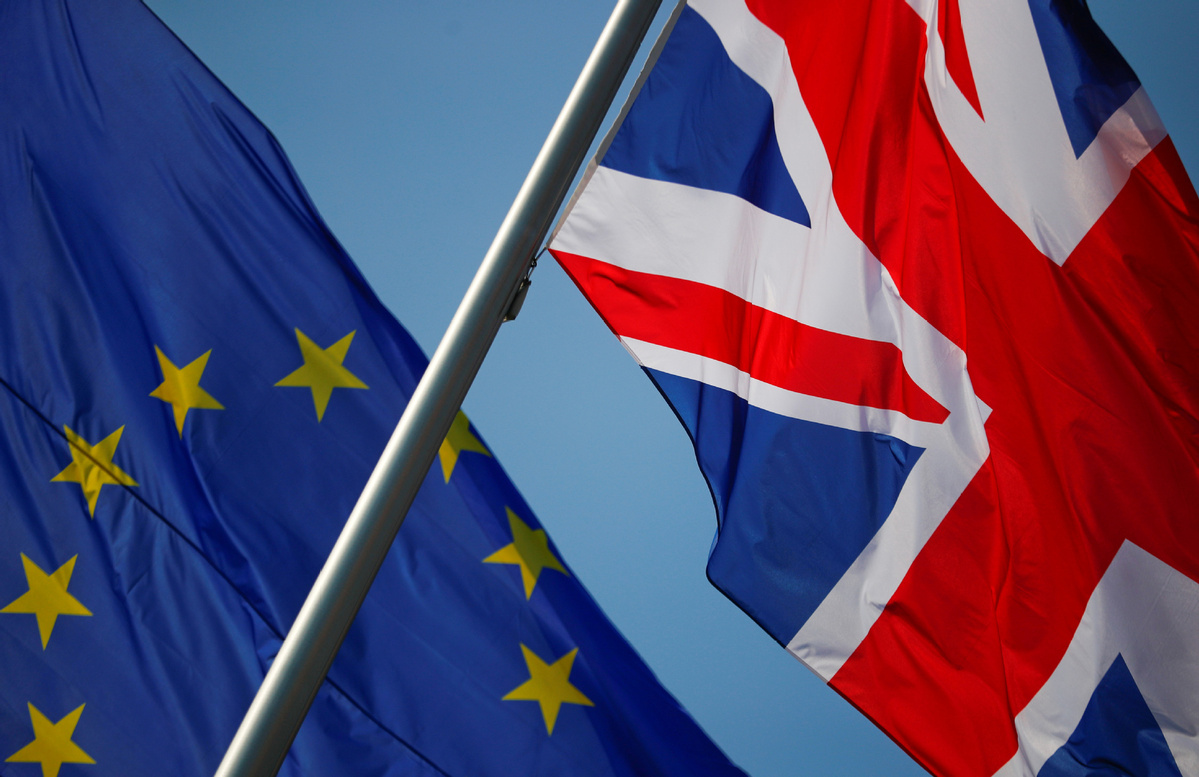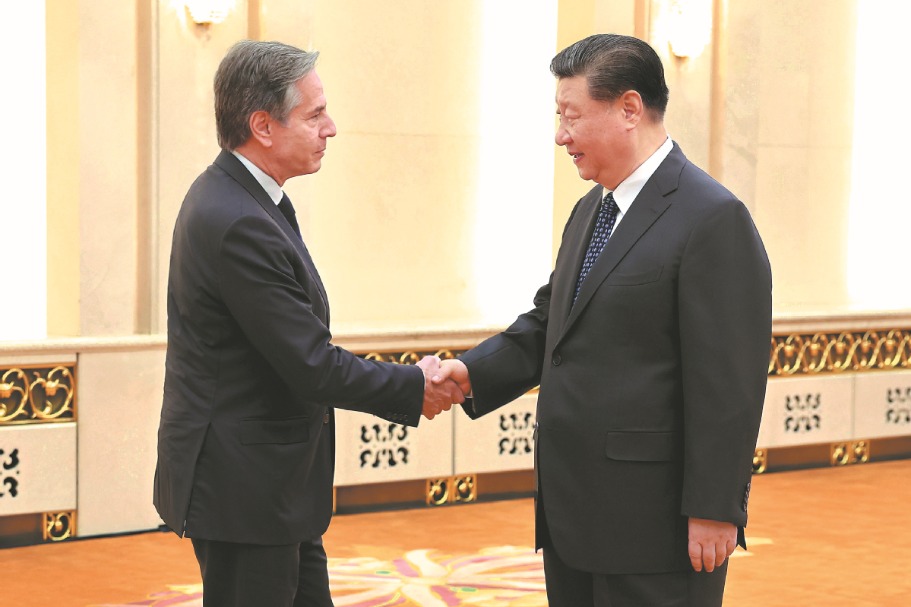Experts: Brexit 'teething' pain to linger longer
By ANGUS MCNEICE in London | China Daily Global | Updated: 2021-05-31 09:32

UK's trade with EU drops 23% in first quarter, following its departure from single market
United Kingdom Prime Minister Boris Johnson warned that the economy was likely to experience some "teething problems" following Britain's departure from the European single market and customs union on Jan 1.
Five months on and Johnson was not wrong, though he might be guilty of an understatement.
The UK Office for National Statistics revealed last week that UK trade with the European Union dropped by 23 percent in the first quarter of this year, compared with the same period in 2018.
The ONS used 2018 for comparison as the most recent period with a stable trading pattern, unaffected by the novel coronavirus pandemic.
While it is impossible to completely disentangle Brexit from COVID-19-related disruption, the ONS data showed that overall trade with non-EU nations only dipped by 0.8 percent, suggesting that Brexit had a large impact on declining trade.
A number of factors will have contributed to the massive hit to UK-EU trade. While the UK and the EU agreed on tariff-free goods in their trade deal, traders must now make customs declarations, leading to much more paperwork and bureaucracy. Many traders also stockpiled goods in the lead-up to the UK's departure from the single market in January, causing further short-term irregularities.

Sober-minded economic forecasters have predicted a short period of significant trade disruption, followed by a recovery as traders get used to new systems.
The medium-to long-term effects of Brexit remain to be seen, but there are some aspects of the UK-EU trade deal that could mean that economic pain is felt long after the "teething period "is over, according to some analysts.
Manufacturers face increased paperwork, both in the form of customs declarations and certification of their products within the EU.
Meanwhile, service providers face "serious impediments in accessing the European market", according to a report from the group UK in a Changing Europe, including securing visas and ensuring the acceptance of professional qualifications.
Economists at the group, which is funded by the Economic and Social Research Council and based at King's College London, predict Brexit will cut 6.4 percent from the UK gross domestic product over the next decade.
"That is still our view," said Jonathan Portes, a senior fellow with the group and a former chief economist in the UK Cabinet Office.
"That is very much a medium- to long-term model. It would be surprising if anything had emerged to change that. If we'd seen absolutely no impact of Brexit in the first month, we would have thought we'd been pessimistic, or if we'd seen exports fall by 50 percent and not recover at all, we would have thought, 'Oh my God, it's going to be even worse', but what we have seen so far … is much what we would have expected in broad terms."
Portes said that the main drivers behind this predicted economic downturn are barriers to trade, specifically nontariff barriers, which will mean "significantly less trade between the UK and the EU".
"That in turn has direct effects and makes us poorer because we either have to stop buying stuff or buy it from somewhere else more expensively or produce it ourselves more expensively," he said. "And equally it means our exporters have smaller markets, or lower profit margins. More open economies tend to be more efficient, with higher productivity, probably because competitive pressures are greater."
Wolfgang Munchau, the director of the think tank EuroIntelligence, argues that one key trade area where the UK may benefit from regulatory divergence with the EU lies in data trading. He said that data sharing is set to make up an increasingly larger proportion of trade, and that EU general data protection regulation is "business unfriendly". The US and China are the largest investors in artificial intelligence.
"So, if you base your macro models on existing statistical categories, you are very likely to miss out on the single biggest economic growth area in global trade," Munchau said.
However, Munchau said that he is not optimistic that the UK government will make the best of the opportunities for regulatory divergence.
"I am not making the argument that Brexit will be an economic success; I don't think it will," he said.
The Confederation of British Industry further outlined the importance of future-proofing Britain in a recent report titled "Seize the Moment", which outlines an economic plan for the next decade.
The CBI identified decarbonization, promoting innovation, and addressing inequalities as three critical areas if the UK is to remain competitive in a post-Brexit world.
"We argue that the UK is well placed to lead in carbon capture and hydrogen technologies. But we must build more giga-factories to realize our electric-vehicle ambitions," said Tony Danker, the director-general of the CBI.
























